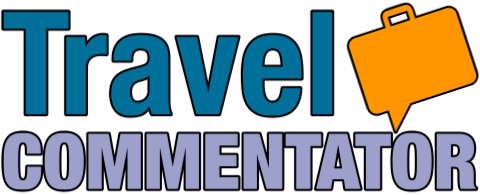From Office Chair to Open Skies: Build a Location-Free Life That Works

You’ve stared at the office wall one too many times. Same desk, same Slack pings, same stale coffee. But what if you could break the loop—without breaking your career? Becoming a digital nomad isn’t a fantasy. It’s a systems upgrade. With the right structure, you can live anywhere, work everywhere, and still hit your deadlines. This guide shows you how.
Start With Income That Moves With You
Before you pack a single bag, confront the core question: How will I earn while I move? Most successful nomads don’t leap—they build a bridge. That starts by exploring freelance paths, remote contracts, and online business models that don’t rely on physical presence. It’s not just about having skills—it’s about knowing what’s portable. Spend real time on remote income pathfinding. Some choose copywriting or coding; others go the route of virtual assistance or e-commerce. The common denominator? Income that’s not tied to geography. You need to decouple where you are from how you earn, or you’re just traveling broke. Set up one stream before takeoff—two, if you’re smart.
Upskill While You Travel to Stay Competitive
Freedom doesn’t mean stagnation. If anything, digital nomads must stay sharper than office-bound peers to remain relevant. That’s where continuous learning becomes your leverage. And for many, especially those interested in tech-heavy roles, diving into information technology coursework while on the road becomes a smart move. The flexibility of asynchronous online programs lets you study from anywhere—airport lounges, Airbnbs, or hostel rooftops. You’re not just acquiring skills; you’re building proof. And in remote hiring landscapes, certification or a degree in IT can give your application teeth. This isn’t just education—it’s your passport to better clients and offers.
Master the Tools That Keep You Moving
The romance of café laptops fades fast if your tech stack collapses mid-call. Reliability wins. Calendar hygiene matters. And your hardware must be battle-tested for timezone juggling and Wi-Fi roulette. That’s why habits for working anywhere make or break your momentum. From password managers to project tools, VPNs to power adapters, you’re building a mobile workstation that travels better than you do. This isn’t about having the newest apps. It’s about having frictionless access to what you need—offline, online, or upside down in a Sri Lankan guesthouse. Prep once. Stay smooth.
Understand the Paperwork That Lets You Stay
Visas aren’t boring—they’re survival. Many nomads get booted or burned out simply because they didn’t do their homework. Legality isn’t optional, and neither is burnout from visa runs. If you want longevity, stop looking for loopholes and start looking at comparing digital nomad visa options globally. Countries like Portugal, Croatia, and Colombia now offer pathways designed specifically for location-independent professionals. These often come with income minimums, tax implications, and real paperwork. Don’t skim. Understand what each destination expects from you—and whether that aligns with your financial, legal, and emotional bandwidth. One overlooked form can undo months of planning.
Pick Places That Power Your Work
Some cities seduce with beaches, others with bandwidth. Your job is to balance the two. You’re not a tourist; you’re an operator who moves. That means evaluating not just cost of living, but latency, power outages, co-working culture, and community safety. You need a place where work can thrive—not just where sunsets hit right. Before booking anything long-term, spend time reviewing internet quality, safety, and time zone balance. Cities like Tbilisi or Medellín might surprise you with their infrastructure, while popular hotspots sometimes falter under digital pressure. Treat destination picking like you would choosing an office lease—it’s not about vibes; it’s about function.
Design Days That Don’t Burn You Out
The greatest threat to digital nomads isn’t bad Wi-Fi—it’s rhythm collapse. Jet lag, lack of boundaries, inconsistent schedules—these erode your attention until you’re busy but unproductive. That’s why you must structure your travel workdays. Think calendar blocks. Think movement rituals. Think scheduled offline time. Discipline creates freedom, not the other way around. Make routines modular so you can adapt across time zones without losing your footing. A structured morning in Bangkok should look different than in Berlin, but the intent should feel the same. Anchor your day before the day anchors you.
Going nomad isn’t an escape—it’s a redesign. You’ll need mobile income, strong routines, and people who get it. You’ll mess up, course-correct, and find your rhythm. But once it clicks, you won’t miss the office. Not the beige walls. Not the meetings. Just the quiet freedom of building a life that moves with you.











